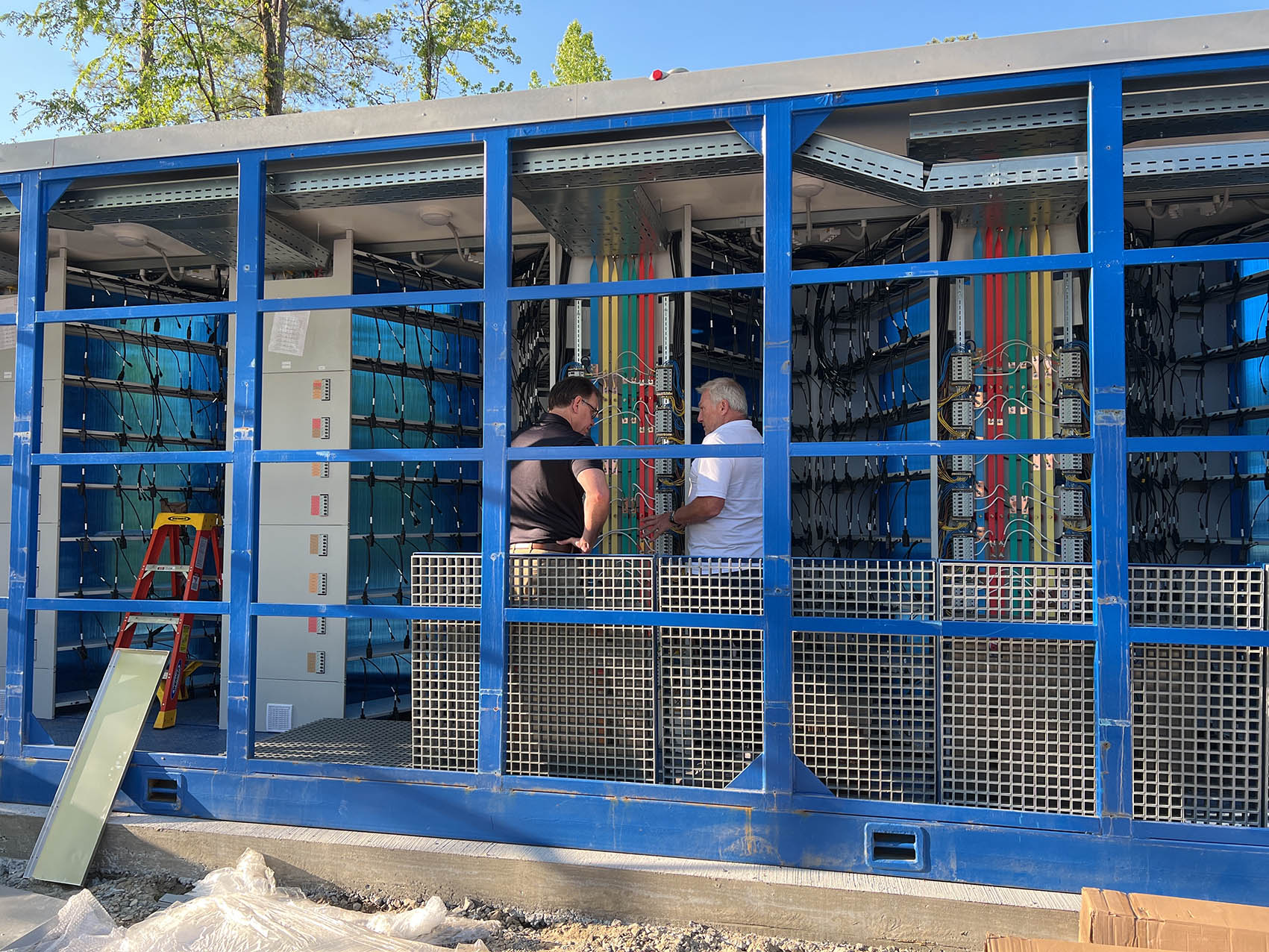Count me in!
Stay up to date with the latest news, announcements, and articles.
When starting your own mining endeavor, the first thing to consider is whether you want to operate your own mining fleet or use the services of a hosting company. Running your own crypto mining equipment requires you to be a jack-of-all-trades, as you will deal with electricity, plumbing, HVAC, noise management, maintenance, repairs, and more. This is why many people opt for hosting services. Additionally, many miners choose to work with hosting companies to access lower electricity rates, benefit from economies of scale, and mitigate risks such as theft, vandalism, and equipment failure.
Hosting services are arrangements where individuals or companies can place their mining hardware in a facility operated by a third-party service provider. The mining hardware remains owned by the client but is physically housed and maintained by the hosting provider in their data center or facility. The hosting provider manages the physical infrastructure, including cooling, electricity, security, and internet connectivity.
Clients typically pay a fee to the hosting provider for these services, which may be structured as a flat rate or based on factors such as power consumption.
A good mining hosting company should prioritize reliability, security, efficiency, transparency, and customer support to meet the diverse needs of its clients and help them achieve their mining goals. It’s crucial to choose a reputable hosting company with a strong track record. Reviews, testimonials, and interactions on social media can be valuable resources to evaluate the credibility and performance of a hosting provider.
Learn how to choose the best Bitcoin mining hosting services here.
Whether you’re considering operating your own machines or using the services of a hosting company, it’s crucial to understand that mining is a business. To run a successful mining venture, you need a comprehensive understanding of its complexities.
For those looking to deepen their knowledge of crypto mining and grasp the key elements of starting a mining operation, we recommend “Mastering Bitcoin Mining,” a comprehensive guide by Digital Mining Solutions. This must-read 50-page handbook covers essential topics to help you succeed in the mining business:
We appreciate your steadfast support for EZ Blockchain. Your loyalty drives us to provide unparalleled service as we navigate the dynamic world of Bitcoin mining together. To show our gratitude, we’re pleased to offer you an exclusive 21% discount on “Mastering Bitcoin Mining”. Claim your discount by clicking the banner below.
*The offer for “Mastering bitcoin mining” is an offer provided by Digital Marketing Solutions. Please contact Digital Mining Solutions if you have any questions about their offer.
To determine if mining is a viable option for you, whether you operate independently or place your machines with a hosting provider, it’s essential to analyze profitability. Profitability hinges on evaluating both revenue and costs.
Revenue
In Bitcoin mining, revenue is influenced by several factors: Bitcoin price, network hashrate and its impact on network difficulty, block rewards (including block subsidy and transaction fees), and the efficiency of your mining fleet.
Revenue is often calculated using an indicator called hashprice. Hashprice represents how much a miner can expect to earn in USD ($) per Terahash (TH/s) of computing power per day. It is determined by network difficulty, block subsidy, transaction fees, and Bitcoin price, and is measured in dollars per petahash per day ($/TH/Day).
As of the time of writing this article, the hashprice stands at $0.06/TH/Day. Therefore, a Bitmain Antminer S21 with a hashrate of 200 TH/s would generate revenue of $12 per day (200 TH x $0.06/TH/Day).
Costs
The costs associated with Bitcoin mining can be categorized into two main types. The first is the initial investment, known as capital expenditure (CapEx). For those using hosting services, this typically includes the price of the ASIC miner, along with potential expenses such as shipping and setup fees.
The second type of costs are operational costs (OpEx), which encompass various elements such as electricity, maintenance, repairs, and security. When utilizing a hosting service, these expenses are often covered by the hosting service fee.
The total operational costs, or hashcost, or all-in hosting fee in the case of co-location. At EZ Blockchain, the hosting fee starts at $0.065 per kilowatt-hour (kWh). The Antminer S21 with a hashrate of 200 TH/s operates at 3500 watts or 3.5 kW. This means the daily operational cost to run an S21 is calculated as follows: (3.5 kW x 24 hours) x $0.065 = $5.46 per day.
Profit
Profits in Bitcoin mining are determined by subtracting costs from revenue. For instance, for the Antminer S21, this equates to $12 – $5.46 = $6.54 profit per day assuming 100% uptime.
To forecast long-term profitability, considering the fluctuating factors affecting revenue (such as Bitcoin price, difficulty adjustments, block rewards, and uptime), it’s advisable to use advanced calculators available online. These tools provide a more accurate projection of potential earnings over time.
Fill out a form and our bitcoin mining expert will contact you.
FREE CONSULTATIONFill out a form and our bitcoin mining expert will contact you.


